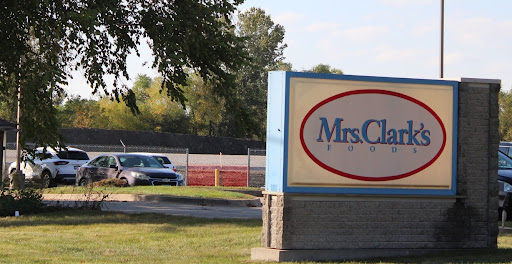Changing the cultural perception of entrepreneurs
Advocates aim to encourage entrepreneurship through storytelling

Lisa Rossi May 23, 2025 | 6:00 am
8 min read time
1,898 wordsAll Latest News, Innovation and EntrepreneurshipA group of Central Iowa entrepreneurs, funders and advocates are trying to reframe entrepreneurship as a legitimate career path by creating an inspirational hub of conversation via Substack, an online writing platform. The Iowa Startup Collective is a group of nine writers, each writing about entrepreneurship from different angles.
Tej Dhawan, who started as an entrepreneur and is now managing director of Plains Angels, is a member of the collective. His Substack aims to create a cultural record of Central Iowa technology startups and founders who have sacrificed to build and have inspired others in the process.
A perception still exists that entrepreneurs don’t have a real job, Dhawan said.
“The reason is there’s a false belief that we haven’t had sufficient successes for new entrants to fall back on and say, ‘Hey, if I do it, I can succeed like they did,’” Dhawan said. “So my Substack was to say, not only have successes happened in the last decade or two decades, but really since debt started to make its inroads in Iowa in the ’60s. We’ve had multiple successful businesses who have gone on to create more.”
One goal of this effort to tell more stories about entrepreneurship in Iowa is to encourage more people to take the leap and found a startup in a state that has a low rate of new entrepreneurs nationally.
The effort to shift the narrative around entrepreneurship partly originated when a group of 12 stakeholders from Des Moines and Ames, including Dhawan, participated in the Massachusetts Institute of Technology’s Regional Entrepreneurship Acceleration Program, also known as MIT REAP.
MIT REAP is a global initiative that aims to help regions assess the strengths and weaknesses of their entrepreneurial ecosystems and define goals and action steps for the future.
The Central Iowa cohort worked together at home and traveled to Boston and Perth, Australia, over two years to learn from others. The program concluded in December 2023, but the work continues.
Under the name Central Iowa Entrepreneurship Coalition, several members of the original cohort are pursuing several goals, including changing the cultural perception of entrepreneurship.

“We were in Boston, and we were essentially given homework to really hone in on some of our challenges and maybe even weaknesses of our region,” said Diana Wright, startup community builder at the Greater Des Moines Partnership. “One of them definitely bubbled up as a pillar, and that’s this cultural perception of entrepreneurship.”
Wright said some of the conversation came up through data. She pointed to data from the Ewing Marion Kauffman Foundation, which has a goal of fostering equitable economic mobility. One report showed that in 2020, the most recent year data was available, the share of private sector jobs held at Iowa firms that were one year old or less was 2.33%, the lowest in the nation. In comparison, the share in California was 4.34%, according to the report.
She also pointed to a UCLA study from 2024 that shows the states in 2023 with the highest new entrepreneurship rates, which captures the share of new entrepreneurs in a given month out of the population. The states with the highest new entrepreneurship rates are Florida (0.60%), Texas (0.47%) and California (0.47%). The states with the lowest new entrepreneurship rates in 2023 were Minnesota (0.17%), Kansas (0.18%), and Wisconsin (0.18%). Iowa remains low nationally at 0.19%.
However, Wright noted Iowa is high among states with the highest opportunity shares in 2023, which captures the percentage of new entrepreneurs who created their businesses out of opportunity instead of necessity. Those top states are Minnesota (97.2%), Iowa (95.5%) and Utah (94.6%).
“When it comes to Iowa, people aren’t really aware that entrepreneurs exist around them,” Wright said. “There are certainly celebrity entrepreneurs people are aware of. But when it comes to people in their local community, they sometimes don’t realize that the business they just went and bought something at, or the gadget or service they just used, came from an entrepreneur.”
Wright said after people are aware that there are entrepreneurs in their community the second hurdle is the perception that it is a viable career path.
“And that’s an even bigger jump to get to,” she said.
As part of the coalition’s storytelling efforts, the Iowa Innovation Dashboard, a data project on statewide innovation and startups, is set to be released this summer, Wright said. It will measure venture capital investments, research and development funding, grants and the rate of new entrepreneurs.
“When we were still talking about a lot of our ideas, we thought about, OK, we can do the quantitative data and that’s the dashboard, but the qualitative, like behavioral and cultural perceptions, is sometimes really hard to capture,” Wright said. “And so for us, that’s why we go back to … the new rate of entrepreneurs. Are we seeing an increase in that? Is it staying neutral?”
Central Iowa’s entrepreneurship culture
Dhawan said the conversation about perceptions predates MIT REAP. He said around 2011-2014, he co-founded an entity called StartupCity Des Moines with the main goal to find and incubate a lot of startup businesses.
“We realized that neither our entity, StartupCity, was going to succeed, nor was our hypothesis correct that there was a significant critical mass of entrepreneurs who were building really large companies,” he said. “Risk just wasn’t attractive. So in fact, there’s a T-shirt from around that time that says, ‘Entrepreneurship, synonym for unemployed.’”

It’s possible that numbers showing lower rates of entrepreneurs in Iowa than nationally are because there are already enough full-time jobs, so people don’t “have a push into entrepreneurship,” said Miranda J. Welbourne Eleazar, an assistant professor of management and entrepreneurship at the University of Iowa Tippie College of Business.
She said research shows that after recessions, there are increases in entrepreneurship.
“I was working through the recession, and I had a lot of friends who were laid off, and that gave them the push they needed to start a new venture,” she said.
She said there are a number of strategies that help push people into entrepreneurship, including government grants, accelerators and coworking spaces.
“And some further investment into programs like that just make it more acceptable, like you’re able to talk to people who are doing it already, you’re able to see that that’s something that’s possible, that’s not going to end your opportunities,” she said. “You can always go back and get a stable job if it doesn’t work. A lot of times my classes are talking about failure. It’s not the end, it’s just something you learn from.”
Advocates and entrepreneurs agreed there are regional differences in cultural perceptions of entrepreneurship.

“If we were having this coffee in San Francisco, everybody in here would be building [a startup],” said Ben Milne, sitting in Ritual Cafe in downtown Des Moines, right next to his office for his startup Brale. “I shouldn’t say ‘everybody,’ but I think … it’s very different.”
In Des Moines, where advocates say the culture trends toward full-time jobs with salaries, Milne said he received strong reactions when he stepped down in February of 2020 as CEO of Dwolla, the fintech payments startup he co-founded in 2008.
“There was certainly a feeling of some folks treating me almost like someone had died, or it was a bigger deal for them than it was for me. I think time … resolved that,” he said.

Kaylee Williams, investment director at InnoVenture Iowa, Iowa’s first publicly backed venture capital fund, said when she was first approached for her job at Innoventure Iowa, she had doubts.
She said at the time her biggest concern was deal flow, also known as the amount of founders “in your pipeline that are investable.”
“I didn’t think that there would be enough deals for us to deploy $40 million. … I had a perception that we just didn’t have a lot of entrepreneurs here. So I guess there is that perception, and I was a part of it.”
Williams’ role has given her a good gauge into just how many entrepreneurs are in Iowa.
“We’ve met with over 300 in the last 36 months,” she said. “We meet with an average of 14 entrepreneurs a month.”

Drake Bauer, co-founder and CEO of Flete, which provides fleet management software focused on business operations, said he doesn’t have much awareness of all the emerging startups and entrepreneurs in Des Moines.
“Maybe I should know those, but I don’t,” he said. “Even folks right here in our backyard, I don’t know.”

Erin Rollenhagen, founder and CEO of People-Friendly Tech, a technology solutions company, said the vast majority of responses she hears to her own career as an entrepreneur have been “very positive and supportive.”
“They’re excited to hear that there’s an Iowa company that is working in technology and user experience,” she said. “I think sometimes as Midwesterners, we can be a little self-deprecating about what our abilities are, and that there are really great companies here and companies with a lot of expertise. And so I think it’s fun for people to know that there are local companies that are pushing the envelope of technology.”
‘Startups exist in the middle of the country too’
Wright said her group is focused on exposing people to entrepreneurial stories, not just in Des Moines, but around Iowa, through writing and events.
Wright has been writing a Startup Iowa Hot List for over three years now, a summary of activity in the Iowa startup landscape. It is meant to connect startups to people who “might not always be in the startup community,” she said.
“So whether that is investors, supporters, people even from out of state that read it and they just want to have an idea of what’s the pulse of Iowa and startups, and ‘Oh yeah, startups exist in the middle of the country too.’”
Wright said another goal is to continue convening entrepreneurs and aspiring entrepreneurs through events.
That includes supporting the events that are already happening like 1 Million Cups, a Wednesday morning meetup where entrepreneurs present in front of a group, and supporting new gatherings, which include Iowa Startup Week, a large event planned for this October.
“Events are a great way to just keep bringing together the startup community,” she said.
With the Iowa Startup Collective, topics range from co-founder and CEO of Clayton Farms Clayton Mooney’s post on startups failing because “founders aren’t the best versions of themselves,” to founder of Big Creek Growth Adam Viet’s post on why founders should build in public as opposed to in stealth mode.
Dhawan said part of his goal is to be inspirational. One of his favorite posts was about Tax Act, a tax preparation software created by a team that broke off from Parson’s Technology of Hiawatha, because it was about one of the first software packages he ever bought.
“My hope is to be the chronicler of the aspiration, and share that instead of what might get more clicks,” he said.
Wright said she hopes the group of Substacks adds to the stories already being told.
“It’s just amplifying [existing efforts] and also making sure that we are telling and showing diversity too,” Wright said. “Usually there are certain subgroups within Iowa that maybe they never got told that this is a career path, just because they don’t see it within their personal life.

Lisa Rossi
Lisa Rossi is a staff writer at Business Record. She covers innovation and entrepreneurship, insurance, health care, and Iowa Stops Hunger.











